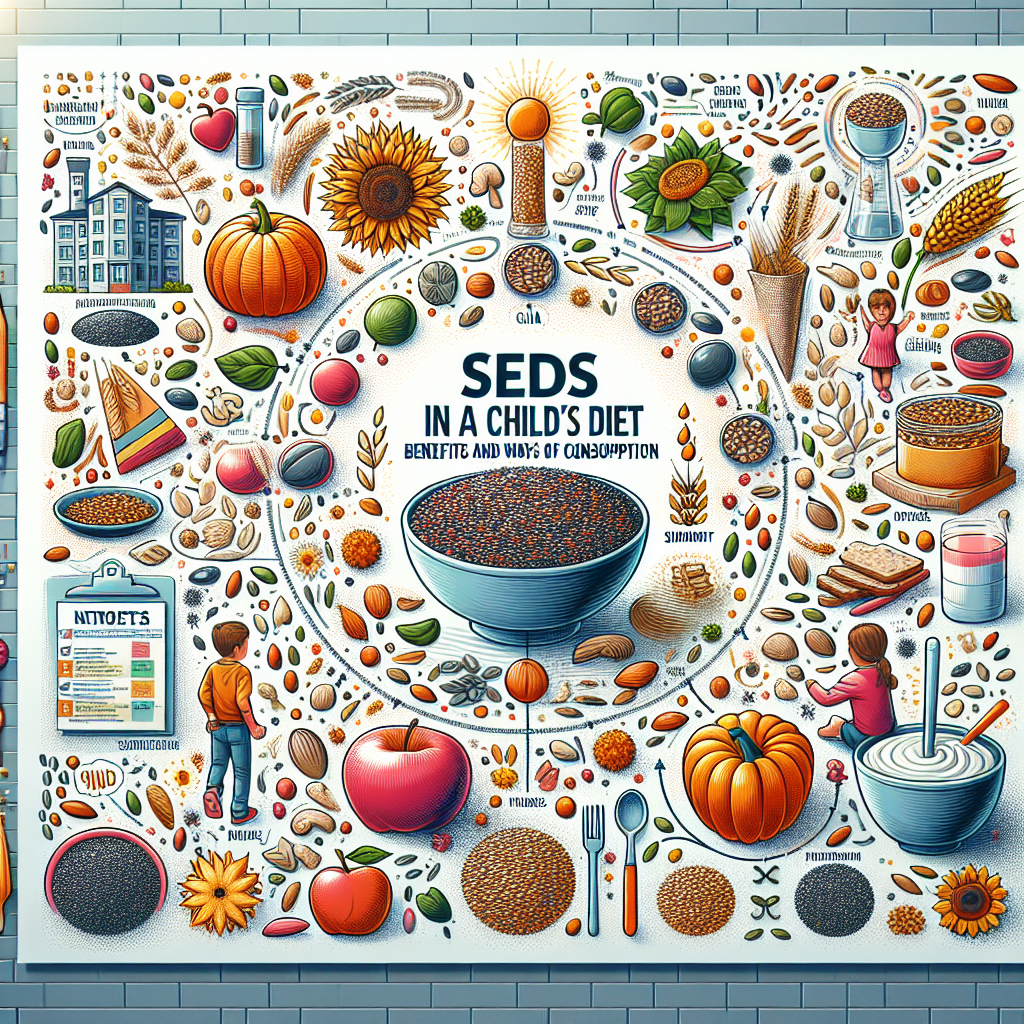Child Development: A Complete Guide to the Essential Stages
Introduction
Every parent wants their little one to grow up healthy and full of energy. Nutrition plays a crucial role in the harmonious development of children, and seeds can be a hopeful adjunct in this process. In the search for the best nutritional sources for the little ones, seeds prove to be true treasures due to the benefits they bring.
The benefits of seeds in baby food
The seeds are rich in essential nutrients that contribute to the physical and cognitive development of the child. The main benefits include:
- Excellent sources of protein: Essential for muscle development and tissue repair.
- Omega-3 fatty acids: Important for brain and nervous system health.
- Dietary fiber: For good digestion and prevention of constipation.
- Vitamins and minerals: Like iron, zinc and magnesium, which are vital for immune and bone development.
Types of Seeds Recommended for Children
The various types of seeds offer a wide range of choices in the child's menu:
- Sunflower seeds: An easily accessible source of antioxidant vitamin E.
- Chia seeds: They contain impressive amounts of calcium and Omega-3.
- Flaxseeds: Recommended for their fiber intake and lignan compounds that help balance hormones.
- Pumpkin seeds: Either as a snack or added to various dishes, they are a good source of zinc and magnesium.
Modes of Consumption
The seeds can be easily integrated into the children's diet, without requiring any additional effort on the part of the parents:
- In yogurts or smoothies: Adding chia or flax seeds can enrich the texture and nutritional value.
- Seed Bread: A nutritious alternative to regular white bread.
- Snacks: Unroasted sunflower seeds or pumpkin seeds can make healthy snacks between meals.
- In cooking: The seeds can be sprinkled over salads, soups or integrated into doughs.
Recommended Portions and Precautions
It is also important to mention some cautionary aspects:
- Supervise the child: To prevent the risk of choking, young children should be supervised when consuming seeds.
- Adequate portions: The amount of seeds consumed should be adapted to the age and nutritional needs of each child.
- Seed quality: Always opt for organic and unroasted seeds to avoid harmful chemicals.
Conclusion
Including seeds in the child's diet brings many benefits for his healthy development. From improving digestion to supporting brain function and growth, these small but powerful sources of nutrients should have pride of place in children's diets. With the variety of ways of consumption and attention to portions and precautions, seeds can become reliable allies in the mission of parents to raise healthy and happy children. Subscribe to our newsletter for more tips on nutrition and children's health, or visit our store to discover products that can help you in this endeavour.














































































































































